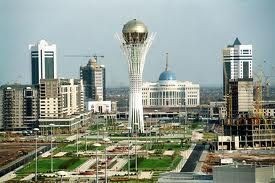ALMATY (TCA) — State officials in oil crisis-hit Kazakhstan have discovered a $20 billion hole on the balance sheet of the National Wealth Fund. Should the state funds be spent this way on, the state coffers will be empty before the end of this decade. A political crisis is looming. In a move to avoid it, the Parliament has applied for snap elections to be held as early as March this year.
“The assets managed by the national fund in Kazakhstan, which relies heavily on oil to finance its economy, have fallen by 16 percent to $64.2 billion in just 18 months. During the same period, the price of oil has plummeted to $33 from $115 a barrel. At least $19 billion was withdrawn by state institutions during the third quarter of 2015,” a rather shocking report in the Financial Times published in the second week of January this year was to read. As far as known, the $19 billion (looking closer at figures, it exceeds $20 billion) amount is not supposed to be included in the $28.8 billion the government officially “plans” to withdraw from the Fund over the next couple of years.
International reserves kept by the National Bank of Kazakhstan are not on the agenda, since these have decreased 10.6 percent from $102.45 billion to $91.58 billion through the year 2015. In all, in the order of 30 billion greenbacks have been taken out of the state’s coffers without anyone seeming to be able to explain for what. It means that if this goes on, those coffers will be empty before the current decade is over. In an attempt to prevent that, new chief executives have been hired to sweep through the mess and finally get all the figures on the table. Baljeet Kaur Grewal, who previously worked as managing director and vice-chairperson of the Kuwait Investment Authority & Kuwait Finance House, vice president in ABN AMRO Bank, Maybank Malaysia and Deutsche Bank, has taken the position of managing director of the Samruk-Kazyna National Wealth Fund. She will be in charge of strategy and portfolio investments of the fund. Elena Bakhmutova, who previously worked as deputy chairman of the fund, took the post of managing director of Samruk-Kazyna on finance and operations.
In a move to avoid a political crisis, the Parliament proposed holding snap elections, and President Nazarbayev has scheduled the early election for March 20 this year. But it is indeed hard to imagine how even a new assembly could show any teeth in a system where political careers have more to do with personal merit than with political clout. Besides, the new people’s representatives, together with the elites in and around the government, will have to take enough “unpopular” measures such as a tough line on tax collection, cuts in social expenditure, employment cuts in the public sector and restraints in subsidies for medium-size enterprises and farming.
With oil prices now around 30 US dollar per barrel and the Kazakh tenge steadily heading towards 400 per greenback, economic growth for this year turning from +2 per cent in 2015 to minus 2 per cent (based on an oil price of $30 per barrel and therefore to be considered optimistic), Kazakh society is under threat.
The Kazakh government might opt to file for default, since the 40 billion dollar it hopes to cash in on sales of state assets this year is considered largely unrealistic by friend and foe. On a broader level, the Great Silk Dream initiated some years ago by China has received a wake-up call and lavish funds from China and Russia are staying where they are: at home. Briefly: in this case, the Kazakhs find themselves on their own.



